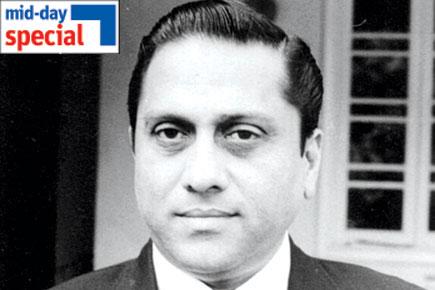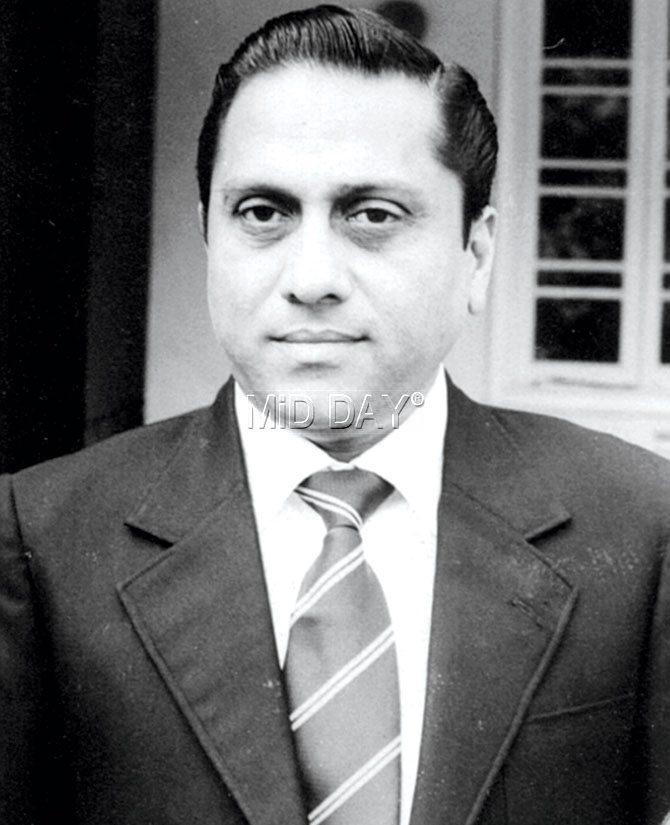Late administrator was the influence behind the International Cricket Council's (ICC) meteoric rise in financial status, writes former cricketer Ian Chappell

Jagmohan Dalmiya pictured in the early 1980s
Sydney: I first got to know Jagmohan 'Jaggu' Dalmiya in 1996 during the ceremonies leading up to the World Cup. I was attending as a former World Cup captain and at the conclusion of a function at the Salt Lake stadium they'd arranged a motorcade to downtown Kolkata.
ADVERTISEMENT
Also Read: Jagmohan Dalmiya: Indian cricket's revolution man
Jagmohan Dalmiya pictured in the early 1980s. Pic/mid-day archives
I asked Jaggu if it would be worth doing. "It'll be one of the great experiences of your life," he confidently responded. The ex-captains were in open top vehicles en route to the city and the numbers lining the road were unfathomable to a couple of Antipodeans. I was standing next to former NZ captain Mark Burgess as the throng threw flower petals and flashed smiles and waves at us. I asked Burgess, "how many people do you think are here?"
Also Read: Who will be Jagmohan Dalmiya's successor as BCCI President?
Burgess replied: "I don't know but we've already passed the population of New Zealand." It was as Jaggu predicted, an incredibly moving experience. So much so that I rang my wife to tell her about it and wrote in a column that with all the talk of danger surrounding the World Cup, we were most likely to be, "killed with kindness" in Kolkata.
Smart administrator
As I got to know Jaggu better I came to realise it wasn't only his knowledge of crowd experiences that was to be admired but also his acumen as a cricket administrator. Through the television entrepreneur Mark Mascarenhas, I met with Dalmiya a couple of times in London during the 1999 World Cup. Dalmiya was president of the ICC and had attracted rather serious allegations from Australian cricket officials over the selection process of the 1996 World Cup hosts.
Also Read: I will miss Jagmohan Dalmiya's ready laugh: Sunil Gavaskar
I put their accusations to Dalmiya at a party in Mascarenhas' London home. He addressed them in a very direct manner and the next day I relayed his answers to one of his Australian critics. The response was; "Ask him about paying officials from other countries to secure the 1996 World Cup?" I saw him again the next night and put the question to him. "Ah," he smiled, "the Australians know all about paying countries to secure the World Cup — they did it for the 1991-92 tournament." Then, after an effective pause he continued, "I just offered them more."
I thought to myself, "I wouldn't like to have Jaggu as an enemy." Because of the strident Australian accusations against Dalmiya I did some research. My conclusion was, if he was being accused of doing the best for Indian cricket then I have no doubt it was true but personally I felt he was above reproach. He was the influence behind the ICC's meteoric rise in financial status.
At an early stage of his presidency, secretary David Richards expressed a need for funds implement an ICC development plan. Dalmiya's response was to organise the 1998 ICC Knockout Trophy (forerunner of the Champions Trophy) in Bangladesh. The tournament raised in the vicinity of US $6m and the ICC finances have been on the up ever since. Dalmiya was a rarity; he was a cricket official who genuinely wanted to hear the opinions of ex-players and to include them in the serious decision-making process of administration.
Had he continued as ICC chief...
In 1999, he chaired a large conference of ex-players in Kolkata to discuss the merits and possibilities of a Test World Championship. The conference produced a number of very good suggestions but sadly nothing came of them. Dalmiya's term ended shortly afterwards and I felt if he'd continued as president there would now be an ICC World Test Championship.
In recent years I lost touch with Jaggu but my admiration never diminished. He was a strong, quiet type but very shrewd and he stood firm at a time when Australian and English officials were used to getting their own way in cricket circles.
 Subscribe today by clicking the link and stay updated with the latest news!" Click here!
Subscribe today by clicking the link and stay updated with the latest news!" Click here!






